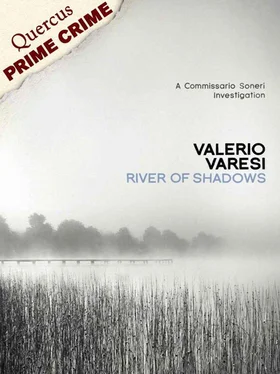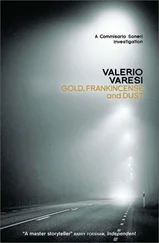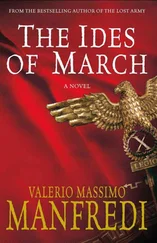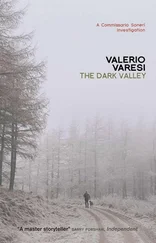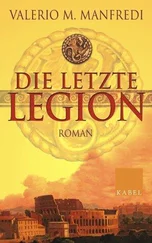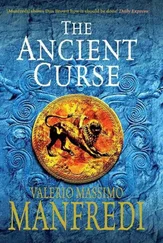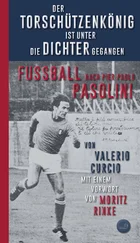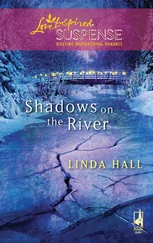Valerio Varesi - River of Shadows
Здесь есть возможность читать онлайн «Valerio Varesi - River of Shadows» весь текст электронной книги совершенно бесплатно (целиком полную версию без сокращений). В некоторых случаях можно слушать аудио, скачать через торрент в формате fb2 и присутствует краткое содержание. Жанр: Полицейский детектив, на английском языке. Описание произведения, (предисловие) а так же отзывы посетителей доступны на портале библиотеки ЛибКат.
- Название:River of Shadows
- Автор:
- Жанр:
- Год:неизвестен
- ISBN:нет данных
- Рейтинг книги:5 / 5. Голосов: 1
-
Избранное:Добавить в избранное
- Отзывы:
-
Ваша оценка:
- 100
- 1
- 2
- 3
- 4
- 5
River of Shadows: краткое содержание, описание и аннотация
Предлагаем к чтению аннотацию, описание, краткое содержание или предисловие (зависит от того, что написал сам автор книги «River of Shadows»). Если вы не нашли необходимую информацию о книге — напишите в комментариях, мы постараемся отыскать её.
River of Shadows — читать онлайн бесплатно полную книгу (весь текст) целиком
Ниже представлен текст книги, разбитый по страницам. Система сохранения места последней прочитанной страницы, позволяет с удобством читать онлайн бесплатно книгу «River of Shadows», без необходимости каждый раз заново искать на чём Вы остановились. Поставьте закладку, и сможете в любой момент перейти на страницу, на которой закончили чтение.
Интервал:
Закладка:
“The trafficking, yes, I believe that.”
The maresciallo fell silent, deep in thought, before adding: “I don’t really believe either that…”
“The magistrate spoke to the press and now it seems that everybody has embraced this idea of the traffickers’ revenge,” Soneri said.
“They’ve cottoned on to the one certain fact. Put yourself in their shoes. What would you do? These two murders have remained unsolved for some time now. If nothing else, this story will help to calm public disquiet.”
Unwittingly, Arico had put his finger on the wound. The only certainty was the trafficking, and to make matters worse, it originated largely from the commissario’s own investigations.
“Have you managed to reconstruct the traffickers’ organization?” Soneri said, feeling annoyance grow inside him as he spoke.
“We’re nearly there. We’ve only one or two points to verify,” he said. Pointing to the door of the club, he went on: “I’ve come to piece together the barge’s movements in the last month from here to other ports along the river.”
“It won’t be too difficult. They keep meticulous records,” Soneri said distractedly.
Arico frowned. “They used to keep meticulous records, but it seems that for the last two months they forgot to keep any account at all of the river traffic. But it shouldn’t be too difficult to put it all together, granted that so few of them carry any cargo,” he said in a tone in which the commissario detected something halfway between seriousness and malice.
“Who worked the river apart from Tonna?”
“Melegari and the one called Vaeven. Whose boat is registered in the name of a fishing co-operative, which — it transpires — is inactive. At Torricella there’s not much indication of activity but I’ve sent an officer to check the registers in the ports in the provinces of Reggio, Mantua, Cremona and Piacenza. Over the last month, it seems that the magano has moored on several occasions in each of them, but here it’s put in only three times.”
“He has to be involved in the same line of business as Tonna,” the commissario said and began to move on. But he had only gone a couple of steps when the maresciallo said: “Don’t you want to come in?”
Soneri thought, and then said, “You have more important questions to ask.”
He clambered over the embankment in big strides, and turned into the colonnaded street. From Il Sordo he heard a tipsy “Rigoletto”, perhaps a consequence of the singer’s second bottle. There was only one table occupied, all British by the sound of them; perhaps they had been on a Verdi pilgrimage and had lost their way in the mist. The landlord had no problem in making himself understood in sign language, since he was accustomed to doing so with those who spoke his own language.
Soneri ate his pumpkin tortelli and stracotto d’asinina and then, after some gesticulating, succeeded in having the landlord cut and parcel up some pieces of culatello and some slivers of well-matured parmesan, which he slipped into the wide pockets of his duffel coat. He went out, leaving both Rigoletto and the Duke of Mantua behind him.
Out on the grass of the embankment, the cold seemed even more biting than in the town. In front of him he could see the fishermen’s cottages and, further down, the port with the moorings, and over to the right the boat club whose great light was, at that distance, no more than a blur in the mist. Thinking over the conversation with Arico put him in a better mood. The meal helped too, especially now that he was losing the calories in the battle against the freezing cold. He had no means of knowing if the magano would turn up, but it was worth waiting at least until after midnight. Was this yet another voyage which would leave no trace in the club’s records?
He wrapped his coat more tightly around him, put on a woollen cap, checked that his mobile was switched off and began feeding himself with pieces of parmesan and slices of culatello at the rhythm of someone poking the fire. Shortly after eleven o’clock, he saw the lights of the club being switched off and heard stray snatches of conversation between people moving from the yard towards the embankment. He thought he could make out the shadows of four people as they climbed towards the elevated road: perhaps Barigazzi, Ghezzi, Vernizzi and Torelli going home to bed.
When the town bell struck twelve, the commissario contemplated giving in to the cold. Ten minutes later, he tried to rise, only to find his legs stiff and all feeling gone from his feet. The hoar frost had covered him all over like icing on a cake, but before he had taken a few steps he began to hear a distant rumble, and as it became louder he clearly recognized the diesel engine of Melegari’s magano.
He saw the prow light as it drew up to the mooring, and then heard a muffled thud as the craft bumped against the tyres on the coping stones. A man leapt ashore to take hold of the hawsers. When he came into the strip of light emanating from the prow, the commissario saw that it was Vaeven. The engine and the light were then both switched off and Soneri waited for Melegari to disembark, even if in the darkness he would find it difficult to make out his imposing bulk. Shortly afterwards, lighting his way with a torch, Melegari appeared with a third man of robust build, slightly bent and with a shuffling gait. Soneri believed that this was the man he had seen between Barigazzi and Dinon near the fishermen’s cottages a couple of evenings earlier.
As the three made their way towards the club, the commissario kept watch on them for as long as he could. He could only make out shadows, but for the moment what interested him was the direction those shadows were taking. They proceeded slowly and would shortly disappear from view at the point where the road curved round parallel to the embankment. Perhaps he would hear their footsteps crunch on the gravel hardened by the frost. He thought of following them, but he risked being given away by the frozen grass, so he decided to let them move off but to keep them in sight until they reached the yard, when he could move on to the road and track them in the fog.
It was some time before they reappeared. He had the impression of hearing first footsteps and then the sound of something bumping against a wooden object, perhaps an oar striking the hull of a boat, and then nothing until he saw Melegari and Vaeven striding back towards the yard. The yellowing light of the huge lamp now lit them up very distinctly, but the third man was no longer with them. He must have gone into one of the cottages whose door could not be seen from where Soneri was, even if it seemed to him impossible that the man would spend the night in such a place. He went down towards the path, slipping on the icy embankment as he did so. The fog and the dark made it difficult to explore that chessboard of gardens and yards which acted as antechambers to the fishermen’s cottages. All he could see were pieces of old furniture piled up, fenced plots that might have been gardens, and a few upturned boats. He did his best to compare his memories with the kind of photographic negative he now saw. What had become of that stooped, apparently elderly man who dragged his feet as he walked?
He made his way back towards the town, walking more quickly to warm himself up. The Italia was in darkness with even the light on the sign outside switched off, while between the houses the streetlights were dimmed by the patchy fog. Over the whole scene, the hoar frost cast a frozen mantle. He walked along the streets in the middle of the road rather than under the low colonnades. He came to the piazza which contained the bar owned by Tonna’s niece and turned back into the alleyways. It was there that he came upon Melegari’s shop, where Barigazzi had told him the old communists of the town gathered around the bust of Stalin. The front was no more than a grey metal shutter with a faded sign above it: shoemaker. He looked up to see a couple of windows with the shutters open.
Читать дальшеИнтервал:
Закладка:
Похожие книги на «River of Shadows»
Представляем Вашему вниманию похожие книги на «River of Shadows» списком для выбора. Мы отобрали схожую по названию и смыслу литературу в надежде предоставить читателям больше вариантов отыскать новые, интересные, ещё непрочитанные произведения.
Обсуждение, отзывы о книге «River of Shadows» и просто собственные мнения читателей. Оставьте ваши комментарии, напишите, что Вы думаете о произведении, его смысле или главных героях. Укажите что конкретно понравилось, а что нет, и почему Вы так считаете.
